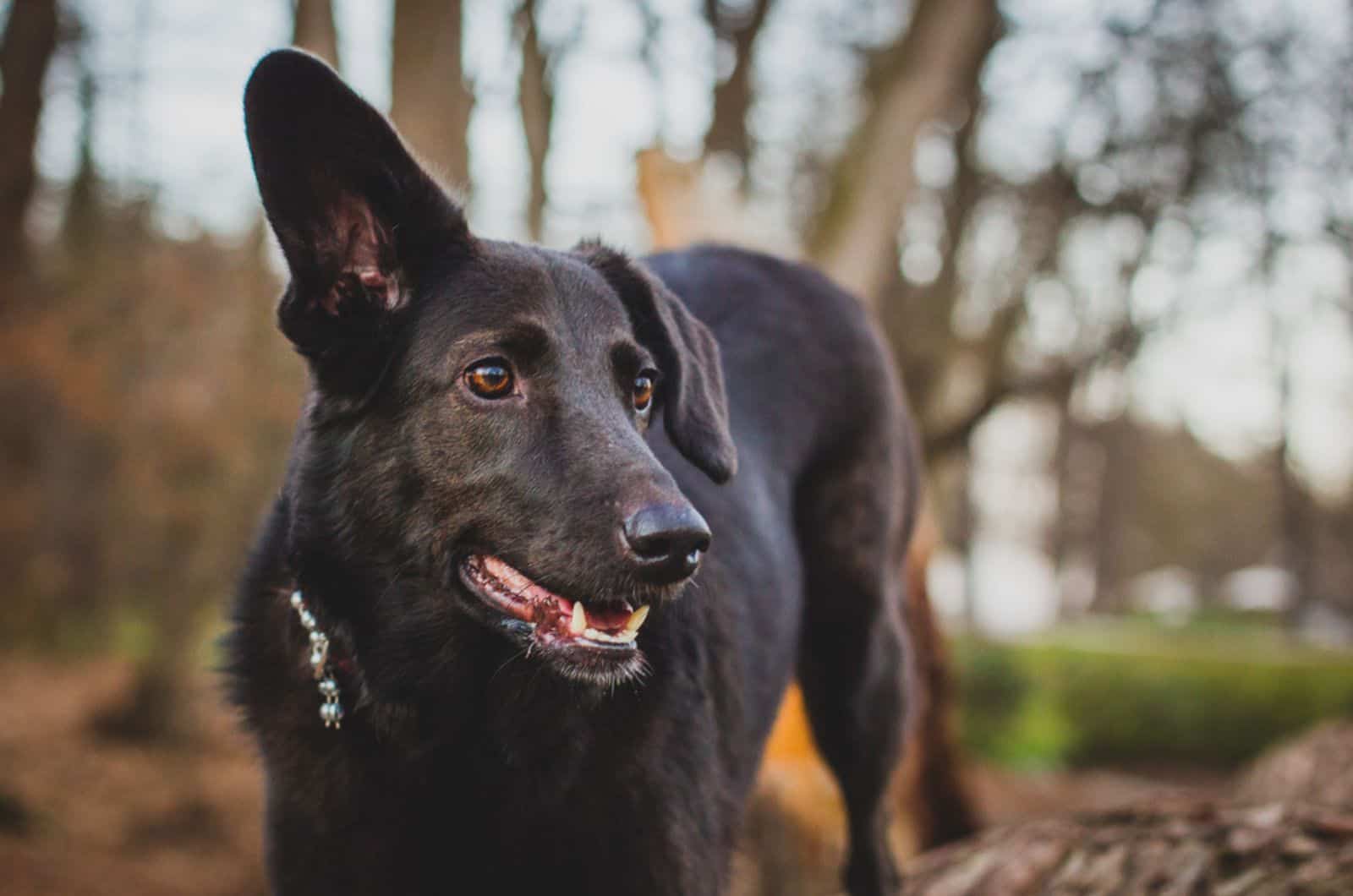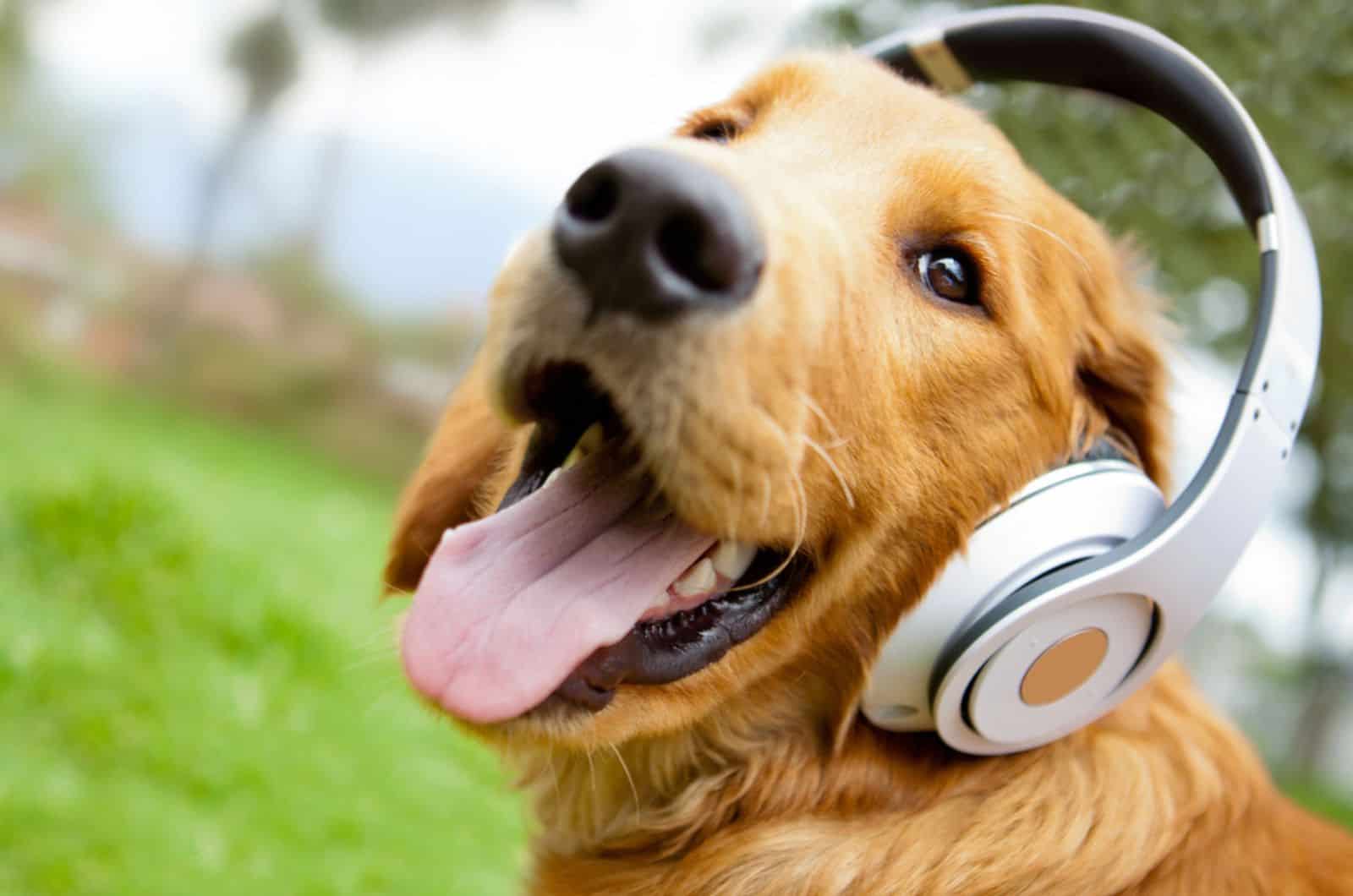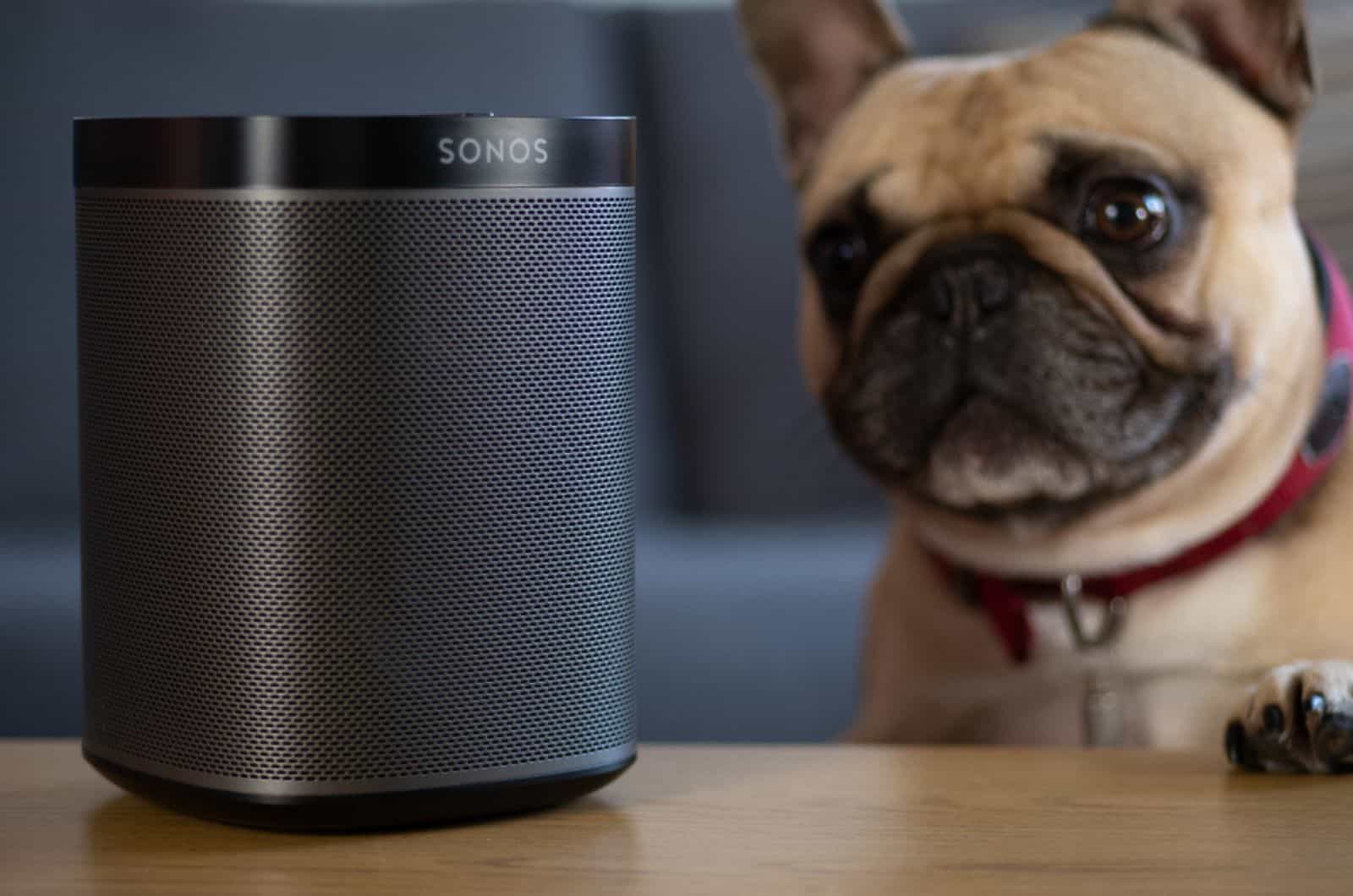We often hear about how great a dog’s sense of hearing is on top of the many other accolades they’re given, that’s why we picked them after all, but what are some of the noises only dogs can hear but we can’t seem to pick up.
Well, there are plenty of noises only dogs can hear, ones outside of our hearing range, as crazy as that may sound, but it is true.
Particularly high pitched sounds, like that of a dog whistle that we may not pick up on, but are especially loud to dogs are just one of many.
This trait hasn’t developed just for the sake of training though, but rather to help the dog’s lupine ancestors survive back when they needed to hunt for prey to not starve.
Back then, it was to help detect the sounds small critters would make in their hiding spots, be it vermin or smaller game which could serve as an alternate method of detection to their scents, just in case the other method wasn’t working for whatever reason.
What are these noises specifically though? Let’s find out.
The Range Of Noises Only Dogs Can Hear

While dogs have a lower hearing floor in terms of frequency than humans do, only coming in at around 40 hZ while humans can go down to 20 hZ, they do have a much higher hearing ceiling than ours, clocking in at around 60000 hZ compared to our 20000 hZ.
Naturally, this differs from one individual to another in both cases, and younger representatives tend to have a larger hearing range than their adult representatives, however it goes down as they age.
What this means, however, is that dogs can hear well past the human range of hearing, at least on the above scale, dipping well into the range of ultrasounds and having nearly 3 times our range.
What Does That Mean?

That means that their hearing is a lot more fine tuned than ours is.
If you’ve ever wondered why your dog gets up to go to the door for no apparent reason only for someone to ring the doorbell some time later, it’s because they were able to hear the person coming “from a mile away”, as most of us would put it.
And that’s because they can hear the quietest of sounds, ones that even go under our perceived 0 dB which we believe to be total silence.
Theirs goes all the way down to -15 dB for the sharpest of canine ears.
There are even more wonders to them though, namely the fact that they can discern the slightest difference in tone and pitch within a sound and react accordingly.
The difference in that skill between dogs and humans is astonishing to the point where it’s a no contest win for man’s best friend.
What’s This Hearing Useful For In Today’s Life?

Primarily in search and rescue dogs and hunting dogs as well as guard dogs.
The former can detect the breathing of a living being stuck under the rubble which makes them the primary heroes of any relief efforts that occur due to natural disasters or when looking for people who got lost in the mountains.
That said, those dogs undergo special training to focus more on these specific shifts in pitch and the detection of the specific sound that distant breathing may make.
In more general terms, dogs can also help detect incoming natural disasters before they happen, which is why you often see your dog get up and panic when an earthquake is about to occur, making them great danger sensors.
As for hunting dogs, their impressive hearing allows them to hear the small animals trying to find a hiding spot in case their sharp sense of smell doesn’t sniff them out.
They can pick up the nigh inaudible breathing sounds that the small animals produce making them an invaluable asset in hunting small game for millenia.
Are There Any Detriments To This Enhanced Hearing?

Of course there are.
Because of such sensitivity, loud noises to us are infinitely louder for the common canine and are the reason why they end up being afraid or anxious around them.
Things like fireworks, gunshots and similarly loud stuff are prone to make him either try to bark at it in an effort to make them go away or have him squeal and either run to you or to his safety corner.
Is There Any Niche Where Human Hearing Is Better Than That Of Dogs?
There is one, spatial awareness.
We’re more precisely able to determine where the sound that we can hear is coming from, about 8 times better than dogs, but that’s about our only win in the hearing category.
How Can We Even Detect The Range Of A Dog’s Hearing?

Well, the modern method is a, so-called, BAER (Brainstem Auditory Evoked Response) test, which involves tracking a dog’s brain activity by placing electrodes on his head.
The dog is then fitted with a set of headphones and subjected to a variety of sounds of increasing pitch.
The electrodes then record the brain activity up to the point where it stops, marking that as the hearing ceiling of the selected pooch.
Numerous tests like these have been conducted on a variety of participants and an average is then determined and rounded up, which currently equates to around 60000 hZ as mentioned prior.
Before electrodes and the BAER hearing test, we relied on the dog’s physical response to the noise which had a bigger margin of error given the subjectivity of body language as opposed to brain activity.
Is It Okay To Use These Sounds In Training?

Not really.
While things like dog whistles may be something that people use in some forms of behavioral training, it ends up training the dogs in one of the worst ways, through active punishment.
We’ve learned since that positive reinforcement is the way to go for most dogs aside from the most stubborn ones that leave us no other choice, though that is extremely rare.
If possible, avoid the use of it, or at the very least don’t use it at full blast and only blow on it briefly with an adequate amount of distance between you and your dog.
The same goes for the sounds found on shock collars as they’re a bit too close to the ears to make it even remotely comfortable for the dog to listen to the noise produced if he misbehaves.
Can I Protect My Dog’s Hearing From Loud Noise?
Not fully as there are some loud sounds you simply can’t remove from your household like the sound of rolling thunder or your neighbors being loud as well as any sounds from the streets themselves.
You can, however, not expose them to loud noise in the house like choosing to vacuum when the dog is out for a walk and not playing the TV too loud at any given point.
Can A Dog Be Trained To Tolerate Loud Noises?

He can, but it isn’t guaranteed to work all the time.
That said, progressively getting him accustomed to the loud noise by starting off small is the best method.
Every day, for about an hour or so, you can play some music at a specific volume that he tolerates, then increase it ever so slightly after every 2-3 days or so.
If he reacts poorly to it, then lower it down again, wait a bit more and continue as intended until he gets more used to it.
Eventually, you’ll be able to reach the desired loudness tolerance for your pooch and he should be less afraid of the various sudden loud noises that may happen.
That said, I’m sure he’ll still be afraid of that house vacuum no matter what. I know mine is absolutely terrified of it no matter what I do.
In Conclusion
There is a wide range of noises only dogs can hear that are known as ultrasounds, ones our human ears can’t pick up.
Their range is around 3 times wider than ours making it more acute in being able to pick up even the quietest of sounds and discerning the most miniscule of differences in pitch.
It’s a trait that has developed in their lupine ancestors when they were still pack animals and has been passed down to the current generation, as sharp as ever, one that makes them excellent search and rescue, hunting and guard dogs.
Not only that, but it’s one of their main ways of interacting with the world around them, which is why taking care of this great gift of theirs is of utmost priority.
While you can’t fully shield them from loud noise exposure as there are some elements you can’t control, you can make him somewhat more tolerant to said noise.
Regardless, I trust that your pupper is in good hands and that his hearing will be a great asset for you as much as it will be for him.
Until next time, pet parents.
RELATED LINKS:
